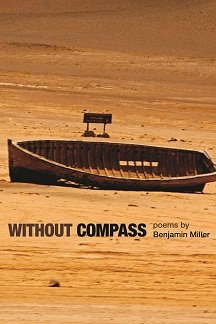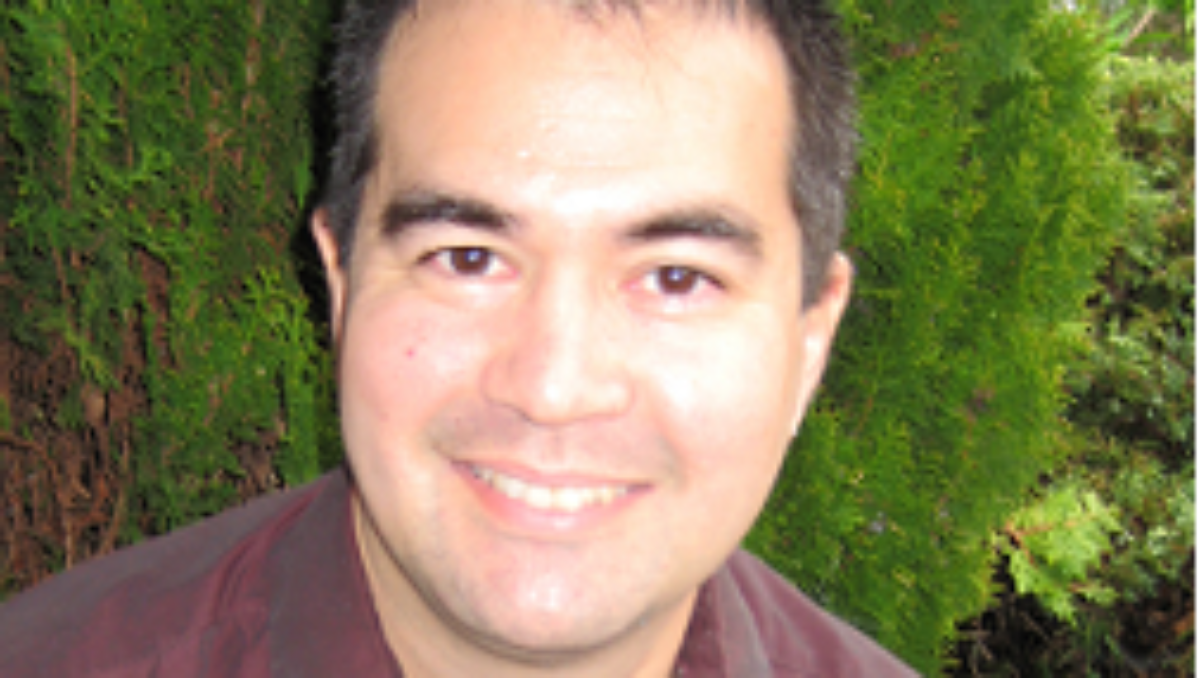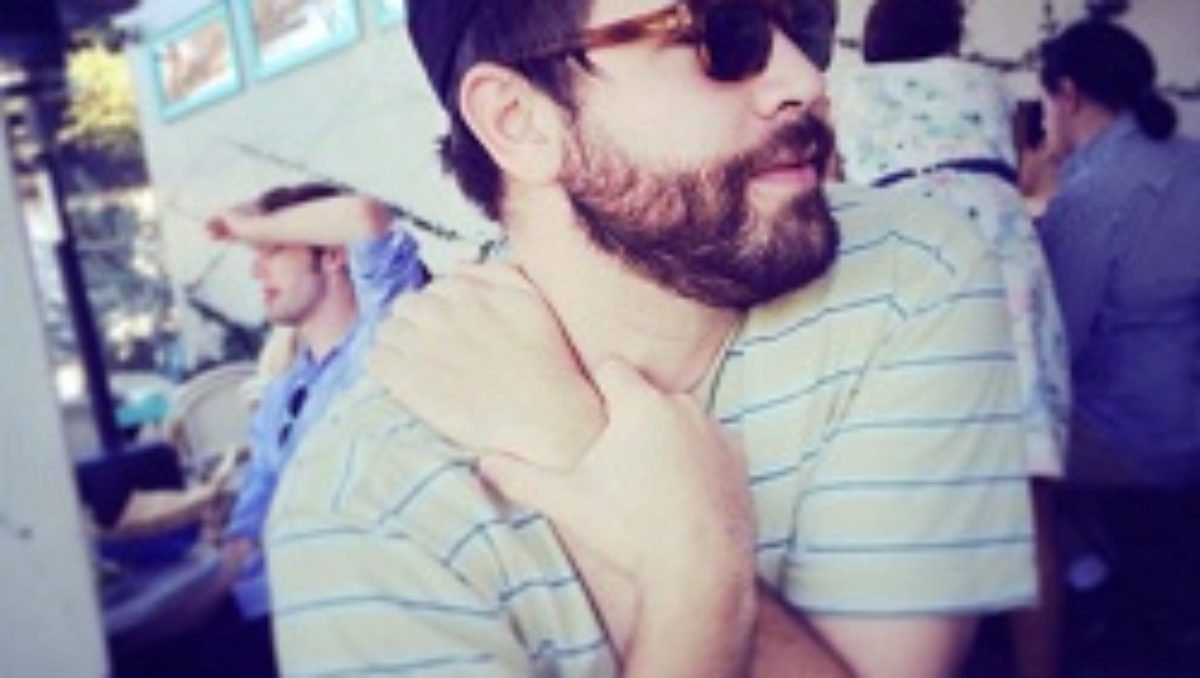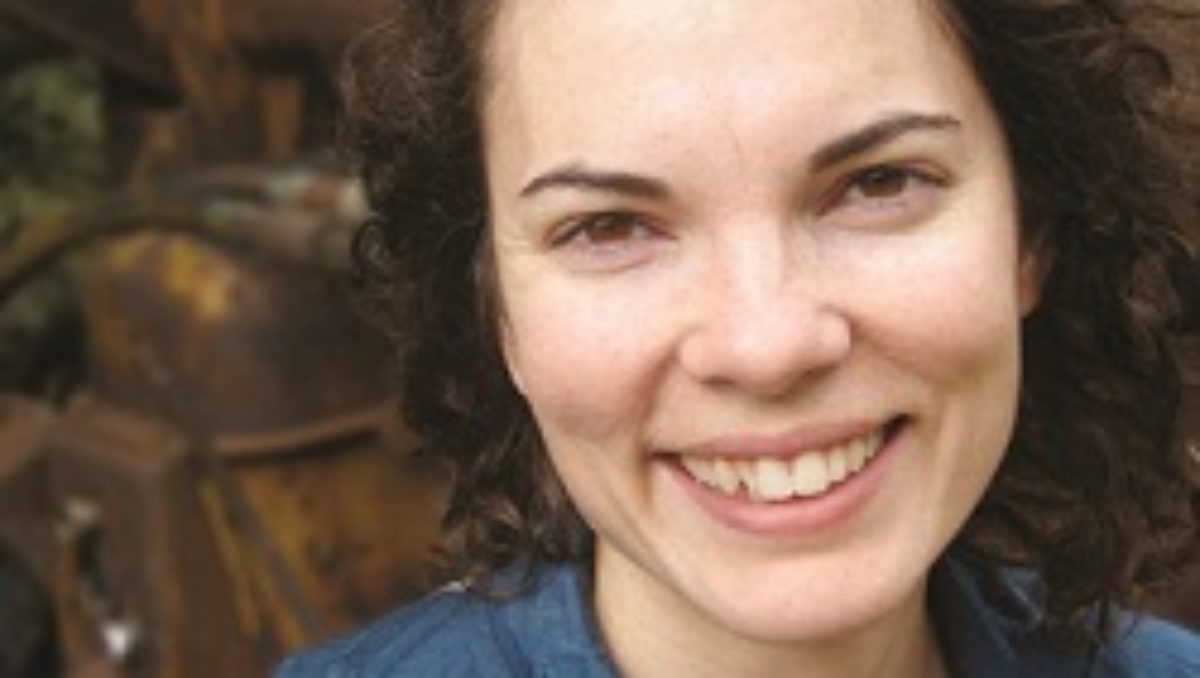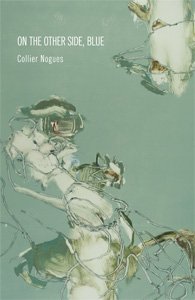FIRST WINTER by Hala Alyan
Our bodies are urns full of rain,
spilling during the harvest. The elders
speak of clemency. The army marches on.
We watch them across the ocean,
speak their undead name in our sleep.
Some of the sisters still make mosques
in abandoned lots. They auction their gold
for Allah’s ninety-nine names, while
the neighborhood boys hawk the spires
for cocaine. In the hour of the blizzard,
the devout speak of owls rising from
fossil. When they bathe, they hear
children’s voices in the pipes, open their
mouths wide to catch that scalding
song. Their wombs are empty now.
They name the trees in the projects for
Hagar. Snow fills the minaret and they wait
to arrive, finally, shaking, to god.
Issue 6 Contents NEXT: Two Poems by Patrick Rosal
TWO POEMS by Lee Sharkey
CIVILIZATION
Even in the most inhospitable circumstances there is always time for a cup of tea.
Say you live in a cup with a hole blasted in its side in a blasted landscape, by a blasted tree
and an empty barrel. You can still park your worn down shoes side by side
at the door and steep your questions in hot water. Since you are a man of letters
I imagine you have many. As steam brushes your cheeks you may read the leaves.
Take your time. The wind is aroused and the clouds are either massing or clearing.
You have lost everything but not what makes you human. I don’t mean your coat and tie.
SHELTER
The forebears have gathered. The clocks have split open. Clock hands lie on the ground
like bent utensils. The forebears emerged through the rock. They are ruins. Dissevered.
Parallel faces frozen in profile. The forebears are listening. And there you stand
(I almost missed you), memory’s king, an ant among giants, hands tucked in your
pockets, downcast, with a stone for a shadow, waiting for whispers, husbanding
wisdom, at home at last in an old stone Eden. Whose face does the rock face bear
and repeat, each and every — your face, God face, Jew face, membranous blessing.
Issue 6 Contents NEXT: Trees by David Lawrence
STACK OF BRIGHTNESS by Rosalynde Vas Dias
What do you know
of the former
beloved/still beloved?
He lives in another
city or speaks
infrequently.
He appears
in the guise
of an owl, he appears
in the guise of a scrawl.
In a series of paintings—
peasant villages,
festive skies—
your two selves
are fractured
and played by
a bunch of characters.
You are close and you
are friends and you recede
endlessly from one
another.
It means you,
singular, string beads.
You make a lot
of bracelets. They grow
up your arm,
a stack
of brightness,
static of the
rainbow. You
(plural) used to make
omelets together
or something.
Issue 6 Contents NEXT: The Smallest Man by Julie Brooks Barbour
Three Poems by Benjamin Miller
IN THE PLACE OF BEST INTENTIONS
As this is not the land of ice packs
and regenerations, of spent glue guns
or antiseptic counters—since shy
reminders filter through the streets all night
(mountain streams that city fountains sip)
absconding with old disappointments—
because the powerlines are wet with flames
that spill their music into shallow halls
devoid of short-term motives, I am lost
and cannot say what may have led me here
to watch the girls unwrapping fiberboard
from miles of burlap while the waitresses
tattoo their angry daisies on my arms.
What is this place that leaves me so unmoved?
A hat I’d never worn or wanted worn
is now my prized possession; tissues packed
into abandoned zipper pockets breed—
I had forgotten that the small glass cups
were hidden in my socks and that my hands
were laced with fine red scratches
long before the advent of arrival. Now I feel
the heat of my illusion dim to tremble,
a dull intrusion into some romantic
basement of unknowable books. And so
forgive me if the water left for tea
is steeped in silt and valentines; forgive
the unexpected token undisclosed.
Last night I thought I wanted tragedy,
a chance to wick away the morning’s
donut, bagel, muffin, scorn. But to span
the gap from night to night, from night
to some hello, is more than I can yet
achieve: a phone that rings without response
and without end or empathy.
Belief is a raft tossed out on a thirsty plain.
Were I that lonesome, I’d never have left.
ON THE MARGINS OF THE PORTABLE COUNTRY
The making of ideology, of how stories learn,
ends in bone. Thus, facts without lives are trouble.
Even squall, the art of, must learn to scramble hours
as the scribblers do; and so some argument electric
in its innocence arrives to silver fictions
out of mauve and maudlin discipline.
All worthy hearts embark. But who returns
from such a journey—who could tent beneath
that zoo and cairn with time’s fool law
and still press on unscathed? (The lathe, the nick,
the cutting tree remembering the cutting.)
On the margins of the portable country,
a stranger compendium lands its craft
of pleasure and scorn, a balloon
in love with a wood, a turtle fallen
from the subjunctive into the academy.
I’ve started marking up a manual of dangers.
You have not all been selected.
IN THE WAKE OF AVOIDABLE TRAGEDY
What little remains is clear: it is over.
The first and the last having gone
and returned, come and returned,
we have learned to welcome those
who make the place feel welcoming.
A guitar in the corner hoards the light,
says: you, in a collapsing world,
your eyes such sharp, undarkened things.
From Without Compass (c) 2014 by Benjamin Miller.
Reprinted with permission of Four Way Books. All rights reserved.
“In the Wake of Avoidable Tragedy” was first published in The Greensboro Review.
- Published in Featured Poetry, home, Poetry, Series
Three Poems by Brian Komei Dempster
CROSSING
No turning back. Deep in the Utah desert now, having left one home
to return to the temple of my grandfather. I press the pedal
hard. Long behind me, civilization’s last sign—a bent post
and a wooden board: No food or gas for 200 miles. The tank
needling below half-full, I smoke Camels to soothe
my worry. Is this where it happened? What’s left out there of Topaz
in the simmering heat? On quartzed asphalt I rush
past salt beds, squint at the horizon for the desert’s edge: a lone
tower, a flattened barrack, some sign of Topaz—the camp
where my mother, her family, were imprisoned. As I speed
by shrub cactus, the thought of it feels too near,
too close. The engine steams. The radiator
hisses. Gusts gather, wind pushes my Civic side
to side, and I grip the steering wheel, strain to see
through a windshield smeared with yellow jacket wings, blood
of mosquitoes. If I can find it, how much can
I really know? Were sandstorms soft as dreams or stinging
like nettles? Who held my mother when the wind whipped
beige handfuls at her baby cheeks? Was the sand tinged
with beige or orange from oxidized mesas? I don’t remember
my mother’s answer to everything. High on coffee
and nicotine, I half-dream in waves of heat: summon ghosts
from the canyon beyond thin lines of barbed wire. Our name
Ishida. Ishi means stone, da the field. We were gemstones
strewn in the wasteland. Only three days
and one thousand miles to go before I reach
San Francisco, the church where my mother was born
and torn away. Maybe Topaz in the desert was long
gone, but it lingered in letters, photos, fragments
of stories. My mother’s room now mine, the bed pulled blank
with ironed sheets, a desk set with pen and paper. Here
I would come to understand.
TEMPLE BELL LESSON
Son, I am weighted.
You are light.
Our ancestors imprisoned,
outcast
in sand, swinging
between scorching air
and the insult
of blizzards.
Their skin bronzed
and chilled
like brass,
listen
to their sorrow
ringing.
GATEKEEPER
Any noise alerts me. My wife Grace shifts beneath our comforter.
Respecting my uncles long dead, I climb from bed, grab
the bat, climb stairs, walk halls with a thousand sutras shelved
high, my grandparents’ moonlit ink floating on pages sheer
as veils, the word Love rescued from censors. In the nursery
I check window-locks, sense my son Brendan falling in and out
of seizures and sleep. Backed by the altar, its purple chrysanthemum
curtains, gold-leafed lily pads, corroded rice paper, I crouch
then stand at the window to watch silhouettes fleeing
past streetlamps, the gate unmoored from its deadbolt, unhinged
from ill-fitted screws and rusted nails. The front door cottoned
with fog shakes in night wind. Backyard bushes rustle. For now
I let the mendicants crack open our prickly crowns of aloe, soothe
their faces with gel, drop bottle-shards and cigarette butts that slash
and burn our stairs. Inside, we fit apart and together.
Grace and Brendan sleeping, me standing guard.
From my grandfather’s scrolls moths fly out, and I grab at air
to repel the strangeness of other lives circling toward us.
From Topaz (c) 2013 by Brian Komei Dempster.
Reprinted with permission of Four Way Books. All rights reserved.
An earlier version of “Gatekeeper” was first published in Parthenon West Review.
|
Topaz, Brian Komei Dempster’s debut poetry collection, examines the experiences of a Japanese American family separated and incarcerated in American World War II prison camps. This volume delves into the lasting intergenerational impact of imprisonment and breaks a cultural legacy of silence. Through the fractured lenses of past and present, personal and collective, the speaker seeks to piece together the facets of his own identity and to shed light on a buried history. |
- Published in Featured Poetry, home, Poetry, Series
Three Poems by Sam Sax
I.35
i watch him touch him self over a screen
and pretend it is with my hands
how you pull a quiver from an arrow.
he moans and i grow jealous of the satellites.
their capacity for translation, to code his sound
in numbers unbraiding in my speakers
lucky metal audience of cables.
i know the wireless signal is all around me,
that i’m drowning in his unrendered noise.
how from a thousand miles away i can dam
myself with the light spilling from his hands.
what magic is this? distance collapsed
into the length of a human breath. what witchcraft?
six years ago a bridge between us collapsed
the interstate ate thirteen people alive
asphalt spilling like amputated hands
into the dark below. what is love but a river
that exists to eat all your excess concrete
appendages? what is a voice but how it lands
wet in the body? what is distance
but a place that can be reshaped through language?
how i emulate and pull a keyboard from the ashes.
how i gave him a river and he became it’s king.
how any thing collapsed can be rebuilt.
take our two heaving torsos take them
how they fall like a bridge into the water
how they rise up alone from the sweat.
BILDUNGSROMAN (SAY: PYOO-BUR-TEE).
i never wanted to grow up to be anything horrible
as a man. my biggest fear was the hair they said
would burst from my chest, swamp trees
breathing as i ran. i prayed for a different kind
of puberty: skin transforming into floor boards,
muscle into cobwebs, growing pains sounding
like an attic groaning under the weight of old
photo albums. as a kid i knew that there was
a car burning above water before this life,
that i woke here to find fire scorched my
hair clean off until i shined like glass – my eyes,
two acetylene headlamps. in my family we have
a story for this. my brother holding me
in his hairless arms. says, dad it will be a monster
we should bury it.
MONSTER COUNTRY
god bless all policemen & their splintering night sticks splintering & lord
have mercy on their souls. god bless judges in their empty robes who send
young men off to prisons with a stain from their antiquated pens. god bless
all the king’s monsters & all the kings men. god bless the sentence
& its inevitable conclusion. god bless the predators, curators of small
sufferings. god bless the carpet that ate one hundred dollars of chris’s
cocaine. god bless cocaine & the colophon of severed hands it takes
to get to your nostrils. god bless petroleum & coffee beans & sugar cane
& rare earth minerals used to manufacture music boxes. god bless the gas
chamber & the gas that makes the shower head sing. god bless the closet
i trapped a terrified girl in with my two good hands. god bless the night
those good boys held my face to a brick wall & god bless those boys
& good god bless the strange heat that pressed back.
you cannot beg
for forgiveness
with a mouth
A Guide to Undressing Your MonstersComing soon from “Sam Sax’s poems are ravenous, intimate, and brutal. God is ‘a man with a dozen bleeding mouths’ and ‘a boy drags his dead dog across the night sky’ and ‘shadows sing.’ Tongued and loved, a butthole becomes a trumpet, a second mouth. His poems reject the given. His poems seek out new encounters between flesh and world, between language and memory. Bristling with stunning images and formally astute, his poems nurture and bruise.” ~ Eduardo Corral |
- Published in Featured Poetry, home, Poetry, Series
Three Poems by Collier Nogues
MISSISSIPPI
I know forgetting myself is a good thing, the best loss.
The trees look soft in the fog’s distance, egg-colored light
all over them. Even the sheep,
eggy.
The earth dries in ribs the rain has drawn on it.
Trees here grow up out of the water. Too little light
to tell what color but the ground that isn’t shining is made of leaves.
So these pools are mirrors:
were it on earth as it is in heaven,
blue land of we-will-all-meet-at-the-table,
I could be for other than myself successfully
without first having to lose someone I love.
THE FIRST YEAR IN THE WILDERNESS
i. Spring
My friend’s little daughter was pulled
under.
What began as a single
instance of labor became
circular:
the child’s mother on her hands
and knees, pushing
floor wax into tile grout
across the emptied house.
ii. Summer
Every window
hung with stained glass crosses
casting rainbows,
coloring
the throw rug and the wall.
Men. Silence,
great crashes of noise at long intervals.
The cat sacked out on the floor.
iii. Fall
Her prayer:
My preparations have outlasted
your stay,
so I have not only
the afterglow of you but also
little signs still
that you are bound for me.
iv. Winter
The only place open after midnight:
tall-stalked bar stools,
the valley laid into the wood
of the wall.
We stayed up
with the lottery sign’s crossed fingers,
while the animals
lay down in the field.
EX NIHILO
The beginning is spring.
The lanes are lined with poplars who lose their leaves to winter
but to whom nothing further wintry happens.
I design it so the marriage lasts as long as the lives,
and the children outlive their parents.
They are all startlingly easy to make happy. They recover
from unease like lightning.
When it falls apart my frustration is like a child’s,
unable to say, unable to make something
happen by saying.
To speak in someone else’s voice is a pleasure, but not a relief.
My tongue burns in its cavity.
My recreation of us is unforgivable
in the sense that I am the only one here to forgive it.
|
“Collier Nogues is a rare poet in the contemporary landscape. Her work is rife with the quick jump-cuts and fragments many young poets favor, but there’s no cynical irony for irony’s sake in her poems. This is poetry that earnestly engages with life’s big questions….A poet is, among other things, a protector of thoughts, a kind of police officer of the inner world. Nogues… makes it a little safer to think, a little less frightening and lonely.” — Craig Morgan Teicher from “Introducing Collier Nogues” in Pleiades, Volume 30 Number 1, 2010 |
- Published in Featured Poetry, home, Poetry, Series
ELEGY WITH SHOTGUN by Anna Claire Hodge
Once you warmed the shower wall with water
before pressing me against it. Some nights,
the bed was feverish heat. You, a man
burning, as the sheets twisted into peaks
not from our lovemaking, but nightmares.
So similar to the snakes in mine: centipedes,
the threat of their endless segmenting. Breaking
apart like mornings you left me for food or family,
the wife and daughters towns away who will never
know my name, theirs on your lips in a way
that gave me pause, that their conjured bodies
might leave the room first, let me have you fully,
before I leaned to kiss you. Tomorrow, I will drive
to the ocean, past the fish camps and souvenir
shacks, to the town where soon my sister will be wed.
She will tell me that she, too, once loved a man
whose brain burst into lace as he vowed himself
to trigger, hammer. She will turn as I enter the room,
careful not to shake loose our mother’s veil
bleeding from her blonde hair, same as mine.
And if I must look away, it will be to the grey
of our wintry piece of ocean, as I imagine a swim
so far from land I might find you whole
and floating, no barrel poised in your gorgeous mouth.
Issue 5 Contents NEXT: Wrong About That by Paul Beilstein
WRONG ABOUT THAT by Paul Beilstein
I thought my sadness was a moron’s elbow.
Thought I could offer it a salve,
or the comfort of a well-worn arm-chair.
I thought I could buy a corduroy shirt
and wash it the exact right number of times.
I hope you have better ideas about yours.
Maybe yours is the referee
of the driveway free-throw drill
I practiced evenings after dad’s no-chop dinners.
Back then, he had a rule for keeping things simple,
but lately I’ve seen him take knife to carrot,
tomato. Maybe yours is the referee,
who helped me count how many
out of one hundred I had made.
It is hard to make friends with the pinstriped,
but I have seen signs on television.
Maybe your sadness is the small belly
peeking through the misty t-shirt
of the early morning jogger, increasingly
invisible to all but the most unkind.
Maybe you are the master of sadness and yours
is the beagle’s drooped ears,
or the quadriceps of the bicycle commuter,
or the tear in the beagle’s owner’s tights,
which must be too comfortable to discard
for such a slight disfigurement.
After each miss, the referee stood under the hoop
unwilling to chase the ball, but after a make,
he gathered it, spun it in his hands as if
examining it for disqualifying flaws,
then snapped a chest pass back to me
with the form my youth team’s coach
must have dreamt of while his wife sat up
watching him whimper and squirm.
I caught the ball, with a developing sense
that something was horribly wrong.
I focused, made eight in a row.
I wanted to know more.
Issue 5 Contents NEXT: Two Poems by Jane Wong
TWO POEMS by Jane Wong
DIVING
To become a world carry your wounds with you:
bright plums split on a dish
a scattered alchemy in the limbs metal upon heart upon glint
could you ever leave? Steal this
in passing, in looking sideways: an owl, a doorway
ever-crooked I have no use for perfect vision
walking downhill always means hold on
to me like a rush of insects ringing heavy in the bells
in a key of light dive bombing outside my window, alight –
my advocate of world-making I assume that you can hear me
tapping along the wall testing poetry or
the solidity of my name language has nothing to do with what I want
these heaps of words, stone upon stone cairn to mark the way above a tree
line, pointing think of the wound instead –
the units of the wound, these lake-worthy moments
the boarded – up houses we sleep in
BREAKER-OF-TREES
My mother cuts the legs
off a moving crab.
The legs curl in a bucket
washed to garbage
to sea. When I come home,
I tread water on the carpet
and hang my head low.
Guillotine of the heart,
the wind causes trouble
between two trees.
The trouble causes splinters
enough to build a forest
in just one hand.
What can we learn
from disaster if not
the familiar angles of a face?
How I can touch yours and say Paul.
I crack open a geode
as a reminder of grace.
From the crystal center,
yolk splinters, pours.
Issue 5 Contents NEXT: Two Poems by Gregory Pardlo
TWO POEMS by Gregory Pardlo
25. Ellison, Tony Samuel, et al. Photograph Album. Twenty-two Albumen Prints: Life in the Louis Armstrong Houses with Views of Marcy Ave. Brooklyn, circa 1986.
A quaint example of urban pastoralism typical of an age when public policy and planning isolated urban poor like so many shepherds on a hill, these images capture a distant and harmless charm. A city block is cordoned for a riverless baptismal, for example; the skin of churchwomen in white linen buffs brown and brightens in sunlight beneath the spectrum shimmering from a fire hose, a curious counterpoint to hoses of Birmingham, these aimed skyward as if to cleanse the undercarriage of every chariot in heaven. In a style that marries Edward S. Curtis and Walker Evans, these images witness conflicting efforts to ennoble a stigmatized community. Of note is how the boom boxes of the youths, their fat shoelaces and hair-styling rituals obscure more complex, personal rites that would otherwise lift them one by one from the muck of type. Yet there is joy; the face of the bodega’s happiest man alive is carved from laughter and a lifetime of tobacco use. Carved deep like the rivers. Sentimental and simplifying, these images highlight the ease by which other can conceal a verb.
Oblong quarto, period-style full green morocco gilt; 22 vintage albumen prints, each measuring 8 by 10 inches; mounted on heavy card stock each measures 10 by 14 inches. $7500.
Original photograph album of Urban America circa 1986, with 22 splendid exhibition-size albumen prints
__________
837. Wilson, Shurli-Anne Mfumi. Black Pampers: Raising Consciousness in the Post-Nationalist Home. Blacktalk Press, Lawnside, NJ, 1974. 642 pp., illustrator unknown. 10 ½ x 11 7/8”.
Want tips for nursery décor? Masks and hieroglyphics, akwaba dolls. Send Raggedy Ann to the trash heap. This tome is a how-to for upwardly mobile black parents beset with the guilt of assimilation. Revealed here are the safetypinnings of the nascent black middleclass, their leafy split-level cribs and infants with Sherman Hemsley hairlines. Of interest are bedtime polemics on the racist derivations of “The Wheels on the Bus.” Chapter headings address important questions of the day: How and how soon should you intervene if you suspect your child lacks rhythm? When do you prepare your little one for the historical memory of slavery? And the two cake solution: one party for classmates, and another one you can invite your sister’s kids to. Indispensible to collectors for whom Aesop’s African origin is no matter of debate, a more appropriate title for this book might nonetheless be, “What to Expect When You’re No Longer Expecting Revolution.”
Usual occasional scattered light foxing to interiors; contemporary tree calf
exceptional. About-fine condition. $75.00
Issue 5 Contents NEXT: The Rabbit by Sarah Huener

